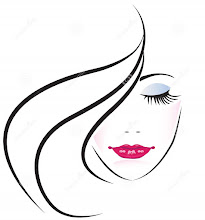ACNE AND PIMPLES
Beauty&fashion
October 31, 2017
Acne and Pimples!!!
Everybody agrees that acne and pimples are very irritating during daily life, and also mess up your party plans!
What
are Acne and Pimples? How are they different?
Many people get one or two spots once in a while,
whereas some others get frequent breakouts with lots of pus-filled pimples. If
the second sounds more like you, it may be acne a chronic or long-term
condition that affects many teens and adults.
Acne is a broader term, and is a
more serious condition that is persistent in nature. Also known as acne, this skin disease occurs as hair follicles are clogged with dead skin
cells and oil from the skin. They manifest as blackheads or whiteheads, pimples,
greasy skin, and sometimes even scarring.
Those red spots that you might see
when you get out of bed and wash your face in front of the mirror are nothing
but pimples.They are not really an outbreak.
ACNE :
Acne can be an effect of heredity,
simply meaning that it runs in the family. In such a case, there is little you
can do to stay away from it, and only a hands-on active treatment schedule from
the time the first signs surface can help contain the damage. In case of a
genetic influence, it might take years to subdue! As disheartening as it may
be, do not lose hope and keep up with treatments and general care consistently!
Acne might also worsen during a particular phase of growing-up, namely
adolescence and puberty.
PIMPLES :
Pimples on the other hand surface
due to more temporary conditions. Digestion-related issues, stressful days at
work, or exam season is a hot favorite for a pimple outbreak. If your skin is
too oily, this can serve as the optimum breeding ground for germs too. Luckily,
they subsequently wear-off when the stress or disappears!
Acne and pimples away from your
bright and shiny face! Try out these very basic tips:
1. Cut down on fried (basically oily) foods.
2. Use scarves while outside and a
helmet while driving to protect your face from pollution
3. Drink lots of water.
4. Include fresh fruits and vegetables
in your diet.
5. Try to thoroughly cleanse your face
once a month to remove dead skin and control oil secretion.
6. Wash and rinse your face .
Anti Ageing : Anti Ageing Most of the women above the age of 30 spend thousands of rupees on many clinical procedures and anti-aging creams to get a youthful skin.
There are several home remedies and anti-aging tips.
1.Honey
You Will Need
1-2 tablespoons organic honey
What You Have To Do
- Apply honey generously on the face and neck. Massage for a minute or two.
- Leave it on for 15-20 minutes and then rinse with water.
How Often You Should Do This
Repeat this every day or every alternate day.Why This Works
The best way to deal with aging is to obtain the purest form of bee’s honey. Honey is nature’s best moisturizer, and we all know that to keep wrinkles at bay, our skin needs to be properly moisturized at all times. Honey also contains antioxidants that repair the damage caused by free radicals and rejuvenate the skin.2. Egg Pack
- 1 egg white
- 1/2 teaspoon milk cream
- 1 teaspoon lemon juice
What You Have To Do
- Mix all the ingredients and apply on the face.
- Leave it for 15 minutes and rinse with cold water.
How Often You Should Do This
Apply this face pack once in every three days.Why This Works
Egg white is a powerhouse of anti-aging agents like omega-3 fatty acids, proteins, and zinc. It is known to tighten the skin making it firm and smooth3. Carrot And Potato Pack
You Will Need
- Boil the carrot and potato, and chop them into small pieces. Mash them to form a smooth paste.
- To this, add a pinch of turmeric and baking soda. Mix well with some water to obtain a smooth paste.
- Apply all over the face and keep for 20 minutes.
- Rinse with warm water.
How Often You Should Do This
Repeat this pack application twice a week.Why This Works
Carrots are a rich source of vitamin A, which helps in boosting the collagen production in the skin. Collagen makes the skin tight and prevents wrinkles, thus giving a very youthful glow to your face .Potato is also considered to be an excellent anti-aging ingredient that fades away wrinkles and evens out the skin tone .4. Yogurt Pack
You Will Need
- 2 teaspoons yogurt
- 1 teaspoon honey
- 1 teaspoon fresh lemon juice
- 1 vitamin E capsule
- A pinch of turmeric
What You Have To Do
- Mix the yogurt, lemon juice, honey, and turmeric together.
- Carefully cut the vitamin E capsule from its tip and gently pour the oil present inside into the pack. Mix well.
- Apply this all over the face.
- Leave it for 10-15 minutes and rinse off with warm water.






